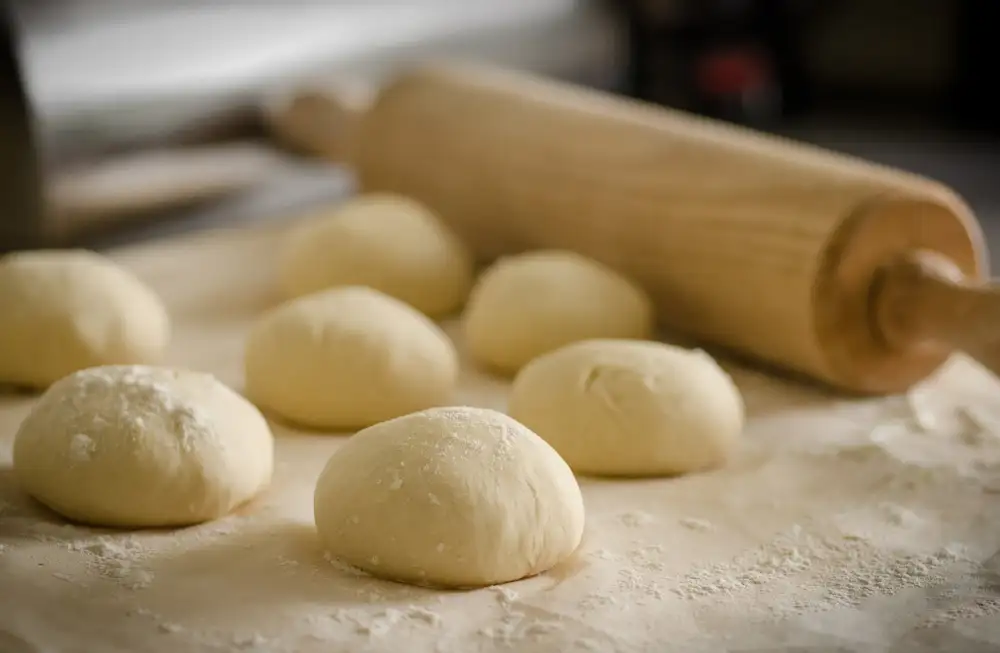Delicious and Nutritious Baby Weaning Recipes: A Perfect Guide for Introducing Solids at Home

- Benefits of Introducing Solid Foods to Babies
- When to Start Baby Weaning
- Essential Nutrients for Baby's Growth and Development
- Safety Tips for Introducing Solid Foods
- Simple and Nutritious Baby Weaning Recipes:
- 1. Apple and Pear Puree
- 2. Sweet Potato Mash
- 3. Carrot and Broccoli Puree
- 4. Avocado and Banana Mash
- 5. Pumpkin and Lentil Soup
- 6. Spinach and Potato Mash
- 7. Blueberry Oatmeal
- 8. Quinoa and Vegetable Porridge
- Finger Foods for Baby-Led Weaning:
- 1. Soft Cooked Carrot Sticks
- 2. Steamed Broccoli Florets
- 3. Toasted Whole Grain Bread Fingers
- 4. Cooked Pasta Spirals
- 5. Mashed Banana
- 6. Cooked Pea Pods
- 7. Soft Cooked Sweet Potato Wedges
- 8. Steamed Apple Slices
Introducing solid foods to your baby is an exciting milestone in their development. It's a time when they start exploring new tastes and textures, expanding their palate beyond breast milk or formula. Baby weaning recipes play a crucial role in this journey, providing nourishment and introducing them to a world of flavors. In this article, we will guide you through some delicious and nutritious recipes that are perfect for introducing solids at home. From purees to finger foods, get ready to embark on this culinary adventure with your little one!
Benefits of Introducing Solid Foods to Babies
Introducing solid foods to babies offers numerous benefits. Firstly, it provides essential nutrients that breast milk or formula alone may not provide in sufficient quantities. Solid foods contain iron, zinc, and other minerals necessary for healthy growth and development. Secondly, it helps develop a baby's taste buds and exposes them to a variety of flavors and textures, promoting a diverse palate later in life. Thirdly, introducing solids can enhance oral motor skills as babies learn to chew and swallow different textures. Lastly, it can help establish regular eating patterns and reduce the risk of picky eating habits in the future.
When to Start Baby Weaning
The timing for introducing solid foods to your baby is an important consideration. The World Health Organization recommends exclusive breastfeeding for the first six months of a baby's life. After this period, you can start introducing complementary foods while continuing breastfeeding. However, every baby is different, and it's crucial to look for signs of readiness such as sitting up with support, showing interest in food, and being able to swallow. It's best to consult with your pediatrician before starting the weaning process to ensure that your baby is developmentally ready.
Essential Nutrients for Baby's Growth and Development
When introducing solid foods to your baby, it is crucial to ensure they receive the essential nutrients needed for their growth and development. These nutrients include protein, carbohydrates, healthy fats, vitamins, and minerals.
Protein is vital for building and repairing tissues, promoting muscle development, and supporting the immune system. Good sources of protein for babies include pureed meats, poultry, fish, tofu, and legumes.
Carbohydrates provide energy for your baby's active lifestyle. Opt for whole grains like rice or oats as they are rich in fiber and essential nutrients. Fruits and vegetables also provide carbohydrates along with vitamins and minerals.
Healthy fats are essential for brain development. Avocado, olive oil, nut butter, and fatty fish like salmon are excellent sources of healthy fats that can be incorporated into your baby's diet.
Vitamins such as vitamin A, C, D, E, and K are necessary for various functions in the body. Offer a variety of fruits and vegetables to ensure your baby receives a wide range of vitamins.
Minerals like iron and calcium are crucial for bone health and blood production. Iron-rich foods include pureed meats, fortified cereals or grains, beans, lentils while dairy products like yogurt or cheese are good sources of calcium.
By providing a balanced diet rich in these essential nutrients through homemade weaning recipes, you can support your baby's growth and development while introducing them to a world of flavors.
Safety Tips for Introducing Solid Foods
1. Start with single ingredients: Introduce one new food at a time to check for any allergies or reactions.
2. Watch for signs of readiness: Look for your baby's ability to sit up with support, loss of tongue-thrust reflex, and interest in what you're eating.
3. Avoid choking hazards: Mash or puree foods to a smooth consistency and avoid small, hard foods like nuts, seeds, and whole grapes.
4. Be cautious with allergenic foods: Introduce common allergens like eggs, dairy, peanuts, and seafood gradually and watch for any adverse reactions.
5. Use safe cooking methods: Steam or bake fruits and vegetables until they are soft enough to mash easily.
6. Avoid added sugars and salt: Babies don't need added sugars or salt in their diet, so avoid adding these to their meals.
7. Practice good hygiene: Wash your hands thoroughly before preparing food and ensure all utensils and surfaces are clean.
8. Always supervise mealtime: Never leave your baby unattended while they are eating to prevent choking incidents.
By following these safety tips, you can ensure a smooth transition to solid foods while keeping your baby safe and healthy.
Simple and Nutritious Baby Weaning Recipes:
Introducing solid foods to your baby is an exciting milestone in their development. It's important to provide them with nutritious and delicious meals that support their growth and introduce them to a variety of flavors. Here are some simple and nutritious baby weaning recipes to get you started:
1. Apple and Pear Puree: Steam peeled, cored, and diced apples and pears until soft. Blend until smooth or mash with a fork for a chunkier texture.
2. Sweet Potato Mash: Boil or steam peeled sweet potatoes until tender. Mash them with a little breast milk or formula for added creaminess.
3. Carrot and Broccoli Puree: Steam carrots and broccoli florets until soft. Blend together until smooth or leave slightly chunky if desired.
4. Avocado and Banana Mash: Mash ripe avocado and banana together for a creamy and nutrient-rich snack.
5. Pumpkin and Lentil Soup: Cook lentils with pumpkin puree, onion, garlic, and vegetable broth until tender. Blend for a smooth consistency.
6. Spinach and Potato Mash: Boil potatoes until soft, then mash them with cooked spinach for a vibrant green puree.
7. Blueberry Oatmeal: Cook rolled oats with water or breast milk, then stir in mashed blueberries for added sweetness.
8. Quinoa and Vegetable Porridge: Cook quinoa with mixed vegetables like peas, carrots, and corn until soft. Blend or mash for a hearty porridge.
These recipes are packed with essential nutrients like vitamins, minerals, fiber, and protein to support your baby's growth and development. Remember to introduce one new food at a time to check for any allergies or sensitivities before offering combinations of ingredients.
Always consult your pediatrician before starting solids, follow proper hygiene practices when preparing food, ensure the food is cooked thoroughly, use fresh ingredients whenever possible, avoid adding salt or sugar to your baby's meals, and never leave your baby unattended while eating.
By preparing homemade weaning recipes, you can provide your little one with nourishing meals and instill healthy eating habits from an early age. Enjoy this exciting journey of introducing solids to your baby and watch them explore new flavors and textures!
1. Apple and Pear Puree
6.1. Apple and Pear Puree
One of the simplest and most nutritious baby weaning recipes is apple and pear puree. Both apples and pears are rich in vitamins, minerals, and fiber, making them an excellent choice for introducing solids to your little one.
To prepare this delicious puree, start by peeling, coring, and chopping one apple and one pear. Then, steam or boil the fruits until they become soft and tender. Once cooked, transfer them to a blender or food processor and blend until smooth.
You can serve the apple and pear puree as is or mix it with breast milk or formula for added creaminess. It's a great option for babies around six months old who are just starting their weaning journey.
Remember to introduce new foods gradually to watch out for any potential allergies or digestive issues. Enjoy watching your baby explore new flavors with this tasty apple and pear puree!
2. Sweet Potato Mash
Sweet potato mash is a delicious and nutritious recipe that is perfect for introducing solid foods to your baby. Sweet potatoes are packed with essential nutrients like vitamin A, vitamin C, and fiber, which are important for your baby's growth and development. To make sweet potato mash, simply peel and chop a sweet potato into small pieces. Steam or boil the sweet potato until it is soft and tender. Then, mash it with a fork or blend it until smooth. You can also add a little breast milk or formula to make it creamier. Sweet potato mash is a great option for babies who are just starting to eat solids as it has a naturally sweet taste that they will love. It can be served warm or cold and makes for a perfect meal or snack option for your little one.
3. Carrot and Broccoli Puree
Carrots and broccoli are both packed with essential vitamins and minerals that are beneficial for your baby's growth and development. This simple puree recipe combines the goodness of these two vegetables to create a nutritious meal for your little one.
To make carrot and broccoli puree, start by peeling and chopping one medium-sized carrot into small pieces. Then, cut half a cup of broccoli florets into smaller florets. Steam the carrots and broccoli until they become soft and tender.
Once steamed, transfer the carrots and broccoli into a blender or food processor. Blend until smooth, adding a little water or breast milk/formula to achieve the desired consistency.
Carrot and broccoli puree can be served warm or cold, depending on your baby's preference. It is recommended to introduce single-ingredient purees first before combining different flavors.
Remember to always check the temperature of the puree before feeding it to your baby. Start with small spoonfuls at first, gradually increasing the portion size as your baby gets used to eating solid foods.
This delicious puree is not only rich in vitamins A, C, and K but also provides important nutrients like fiber and calcium. It is an excellent choice for introducing vegetables into your baby's diet and encouraging healthy eating habits from an early age.
By preparing homemade weaning recipes like carrot and broccoli puree, you can ensure that your baby receives wholesome nutrition while enjoying tasty meals.
4. Avocado and Banana Mash
Avocado and banana mash is a perfect combination for introducing solids to your baby. Avocados are rich in healthy fats, fiber, and essential nutrients like vitamin E and potassium, which promote brain development and strengthen the immune system. Bananas are packed with vitamins, minerals, and natural sweetness that babies love.
To make this delicious mash, simply mash half a ripe avocado with one ripe banana until smooth. You can also add a little breast milk or formula to achieve the desired consistency. This creamy blend is not only easy to digest but also provides a good source of energy for your growing baby.
Remember to choose ripe avocados and bananas for optimal taste and texture. Serve this nutritious mash as a snack or meal for your little one, encouraging self-feeding by using a small spoon or offering it as a finger food option during baby-led weaning.
5. Pumpkin and Lentil Soup
Pumpkin and lentil soup is a delicious and nutritious option for your baby's weaning journey. Pumpkin is rich in vitamins A and C, which are essential for healthy eyesight and a strong immune system. Lentils provide protein and iron, promoting growth and development. To make this soup, simply steam or roast chunks of pumpkin until soft. Cook lentils separately until tender. Blend the pumpkin and lentils together with some vegetable broth until smooth. You can add a pinch of cumin or cinnamon for extra flavor if desired. Serve warm and watch your little one enjoy this hearty meal!
6. Spinach and Potato Mash
Spinach and potato mash is a nutritious and delicious option for your baby's weaning journey. Spinach is packed with iron, calcium, and vitamins A and C, while potatoes provide carbohydrates for energy. To make this simple recipe, steam or boil peeled potatoes until tender. In a separate pot, cook fresh spinach until wilted. Mash the potatoes and spinach together until smooth, adding breast milk or formula to achieve the desired consistency. This vibrant green mash is not only visually appealing but also offers a range of essential nutrients for your baby's growth and development.
7. Blueberry Oatmeal
Blueberry Oatmeal is a delicious and nutritious option for your baby's weaning journey. Oats are packed with fiber, vitamins, and minerals, while blueberries are rich in antioxidants. To prepare this simple recipe, cook oats according to package instructions and add mashed blueberries. Stir well to combine and let it cool before serving. This creamy and fruity oatmeal will provide essential nutrients for your baby's growth and development while introducing them to new flavors.
8. Quinoa and Vegetable Porridge
6.8. Quinoa and Vegetable Porridge
Quinoa is a highly nutritious grain that is packed with protein, fiber, and essential minerals. When combined with vegetables, it creates a delicious and wholesome porridge for your baby.
To make quinoa and vegetable porridge, start by rinsing ¼ cup of quinoa under cold water to remove any bitterness. In a small saucepan, bring 1 cup of water to a boil and add the rinsed quinoa. Reduce the heat to low, cover, and let it simmer for about 15 minutes until the quinoa is cooked and fluffy.
Meanwhile, chop half a carrot and half a zucchini into small pieces. Steam or boil them until they are tender. Once the quinoa is cooked, add the steamed vegetables to the saucepan along with ¼ cup of breast milk or formula milk.
Using a blender or food processor, blend the mixture until smooth and creamy. If needed, you can add more liquid to achieve your desired consistency.
Quinoa and vegetable porridge can be served warm or at room temperature. It can be stored in an airtight container in the refrigerator for up to three days or frozen in individual portions for later use.
This nutrient-rich porridge provides your baby with a good balance of carbohydrates, proteins, vitamins, and minerals necessary for their growth and development. It is also an excellent way to introduce new flavors and textures to their palate.
Remember to always consult with your pediatrician before introducing new foods to your baby's diet. Enjoy this homemade quinoa and vegetable porridge as part of your baby's weaning journey!
Finger Foods for Baby-Led Weaning:
7.1. Soft Cooked Carrot Sticks: Steam or boil carrot sticks until they are soft and easy to chew.
7.2. Steamed Broccoli Florets: Steam broccoli florets until they are tender but still firm.
7.3. Toasted Whole Grain Bread Fingers: Cut whole grain bread into finger-sized pieces and toast them until crispy.
7.4. Cooked Pasta Spirals: Cook small pasta spirals until they are soft and easy to pick up.
7.5. Mashed Banana: Mash a ripe banana with a fork until it is smooth and offer it as a finger food.
7.6. Cooked Pea Pods: Steam or boil pea pods until they are tender and easily squished between fingers.
7.7. Soft Cooked Sweet Potato Wedges: Bake sweet potato wedges until they are soft and can be easily mashed with little pressure.
7.8. Steamed Apple Slices: Steam apple slices until they are soft enough to be easily squished between fingers.
These finger foods provide different textures and flavors, encouraging your baby to explore new tastes while developing their fine motor skills and self-feeding abilities.
1. Soft Cooked Carrot Sticks
7.1. Soft Cooked Carrot Sticks
Soft cooked carrot sticks are a great option for introducing finger foods to your baby during the weaning process. Carrots are packed with essential nutrients like vitamin A, which is important for healthy vision and immune function.
To prepare soft cooked carrot sticks, start by peeling and cutting carrots into finger-sized sticks. Steam them until they are tender but still firm enough to hold their shape. This will make it easier for your baby to grasp and chew.
Once the carrot sticks are cooked, allow them to cool slightly before offering them to your baby. Make sure the sticks are soft enough that they can be easily mashed between your fingers.
As your baby explores this new texture, they may initially struggle with holding and chewing the carrot sticks. Be patient and offer plenty of encouragement as they learn to navigate this new experience.
Remember to always supervise your baby while they are eating finger foods to prevent choking hazards. Cut the carrot sticks into smaller pieces if needed and ensure that they are soft enough for easy chewing.
Soft cooked carrot sticks not only provide a nutritious snack but also help develop your baby's fine motor skills as they practice picking up and self-feeding. So go ahead and introduce this tasty and nutritious finger food as part of your baby's weaning journey!
2. Steamed Broccoli Florets
Steamed broccoli florets are a great option for introducing finger foods during baby-led weaning. Broccoli is packed with essential nutrients like vitamin C, vitamin K, and fiber, which are important for your baby's growth and development. To prepare steamed broccoli florets, simply cut the broccoli into small florets and steam them until they are tender. Make sure to let them cool before serving to your baby. The soft texture of steamed broccoli makes it easy for your little one to pick up and chew. It's a nutritious and delicious option that your baby will love exploring!
3. Toasted Whole Grain Bread Fingers
7.3. Toasted Whole Grain Bread Fingers
Toasted whole grain bread fingers are a great option for baby-led weaning. They provide a soft texture that is easy for babies to hold and chew. Start by toasting a slice of whole grain bread until it becomes crispy. Cut the toast into finger-sized strips, making sure they are not too thick or too thin. Allow the toast to cool slightly before offering it to your baby. The crispy texture will help develop their chewing skills while providing them with essential nutrients from whole grains. Remember to always supervise your baby while they are eating and offer them plenty of water to drink alongside their food.
4. Cooked Pasta Spirals
Cooked Pasta Spirals are a great option for introducing finger foods during baby-led weaning. They are soft and easy to chew, making them perfect for little ones who are learning to self-feed. Cook the pasta until it is fully cooked and tender, then drain and rinse with cold water to cool it down. Cut the pasta into small bite-sized pieces that your baby can easily pick up and eat. You can serve the pasta spirals plain or toss them with a little olive oil or butter for added flavor. Remember to always supervise your baby while they are eating to ensure their safety.
5. Mashed Banana
Mashed Banana is a perfect first food for your baby during the weaning process. Not only is it easy to prepare, but it also provides essential nutrients for your little one's growth and development. Bananas are rich in potassium, vitamin C, and dietary fiber, which aids digestion. To make mashed banana, simply peel a ripe banana and mash it with a fork until smooth. You can also mix it with breast milk or formula to achieve a smoother consistency. Remember to introduce one new food at a time and watch for any signs of allergies or intolerances. Enjoy watching your baby explore this delicious and nutritious treat!
6. Cooked Pea Pods
Peas are a great source of vitamins, minerals, and fiber for your growing baby. To introduce peas as a finger food, simply steam or boil fresh pea pods until they are soft and tender. Allow them to cool before serving to your little one.
To make it easier for your baby to handle, you can remove the peas from the pods and serve them separately. Pea pods are also a fun way for babies to practice their fine motor skills by picking up and grasping the small pods.
Not only are cooked pea pods nutritious, but they also provide a satisfying crunch that babies enjoy. Remember to always supervise your baby while they are eating finger foods to prevent choking hazards.
Introducing cooked pea pods as a finger food will not only provide essential nutrients but also help develop your baby's self-feeding skills. So go ahead and include this healthy and delicious option in your baby's weaning journey!
7. Soft Cooked Sweet Potato Wedges
Sweet potatoes are a great choice for baby-led weaning as they are packed with essential nutrients. To make soft cooked sweet potato wedges, start by peeling and cutting a sweet potato into long, thin wedges. Steam the wedges until they are tender and easily mashed with a fork. Allow them to cool slightly before serving to your baby. The soft texture of the sweet potato wedges makes them easy for your little one to hold and chew on their own. Sweet potatoes are rich in vitamins A and C, fiber, and potassium, making them a nutritious choice for your baby's growing needs.
8. Steamed Apple Slices
Steamed apple slices are a great finger food option for babies during the weaning process. Apples are rich in vitamins and fiber, which aid in digestion and promote overall health. To prepare this nutritious snack, simply peel and core an apple, then slice it into thin pieces. Steam the slices until they become soft and tender, making them safe for your baby to eat. Allow the steamed apple slices to cool before serving them to your little one. The natural sweetness of the apples will surely be a hit with your baby's taste buds while providing essential nutrients for their growth and development.
Introducing solid foods to your baby is an exciting milestone in their development. By preparing homemade weaning recipes, you can ensure that your little one receives all the essential nutrients they need for healthy growth and development.
From delicious purees to finger foods, there are endless possibilities to explore. By incorporating a variety of fruits, vegetables, grains, and proteins into their diet, you can expose your baby to a range of flavors and textures.
Not only do homemade weaning recipes provide vital nutrients, but they also allow you to control the quality and freshness of ingredients. This ensures that your baby receives wholesome and nutritious meals without any added preservatives or artificial flavors.
Remember to follow safety guidelines when introducing solids and always consult with your pediatrician for guidance. With patience and creativity, you can nourish your baby's taste buds while promoting their overall health.
So why wait? Start experimenting with these simple and nutritious weaning recipes today and watch as your little one discovers the joy of food!
Published: 10. 12. 2023
Category: Home



